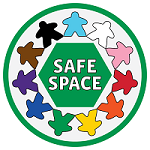Tabletop role-playing games (TTRPGs) like Dungeons & Dragons offer a unique opportunity for players to explore different facets of personality and psychology through their characters. The process of character creation and development in TTRPGs is not just about rolling dice and calculating stats; it’s about crafting a persona that has depth, motivations, and a psychological profile that can evolve over time. In this blog post, we’ll delve into the basics of TTRPG character psychology and provide tips on how to begin refining a player’s character.
Understanding Character Psychology in TTRPGs
At the heart of every TTRPG is the character that the player embodies. This character is more than just a set of abilities or a token on a board; it’s a persona with its own psychological makeup. The psychology of a TTRPG character encompasses their motivations, fears, desires, and the way they interact with the game world and other characters.
One of the core components of TTRPGs is the immersive nature of the gameplay, which allows players to become deeply invested in their characters’ actions and choices. This investment can lead to a rich exploration of the character’s psychology as players navigate through the game’s challenges and storylines.
Starting Points for Character Refinement
To begin refining a character, players should start with a solid foundation. This includes understanding the character’s background, their place in the game world, and the events that have shaped their personality. Here are some steps to get started:
Develop a Backstory: A character’s backstory is crucial for understanding their psychological profile. It should include key life events, relationships, and experiences that have influenced their worldview.
Identify Core Motivations: What drives your character? Is it a quest for knowledge, power, revenge, or something more personal? Understanding these motivations will guide your character’s decisions and growth.
Embrace Flaws and Strengths: No character is perfect, and their flaws are just as important as their strengths. These aspects add depth and realism to the character, providing opportunities for growth and development.
Create a Character Voice: A character’s voice is not just about how they speak, but also how they express themselves and interact with others. This can be a reflection of their psychological state and personality.
Refining Through Gameplay
As the game progresses, players have the chance to refine their characters further. This involves making choices that are true to the character’s personality and allowing for natural development over time. Here are some ways to refine a character through gameplay:
Consistent Character Choices: Make decisions in-game that align with your character’s established psychology. This consistency will reinforce the character’s personality and make them more believable.
Character Growth: Allow your character to evolve in response to the game’s events. This could mean overcoming a fear, changing a belief, or developing new relationships.
Interaction with Other Characters: The way your character interacts with other player characters (PCs) and non-player characters (NPCs) can reveal a lot about their psychology. Use these interactions to explore different aspects of your character’s personality.
Therapeutic Role-Playing: Some players and therapists use TTRPGs as a form of therapy, where the game becomes a safe space to explore and practice social skills, problem-solving, and emotional expression1.
Conclusion
The psychology of TTRPG characters is a complex and fascinating aspect of gameplay that offers players the chance to explore different psychological profiles and personal growth. By starting with a strong foundation and consistently making choices that align with the character’s psychology, players can create and refine a character that is not only engaging to play but also offers a deeper understanding of human behavior and motivation.
Remember, the journey of refining a TTRPG character is ongoing and collaborative. It’s a process that unfolds with each game session, providing endless opportunities for creativity and self-discovery. So, roll the dice, embrace the adventure, and let your character’s psychology shine through in every action and decision
